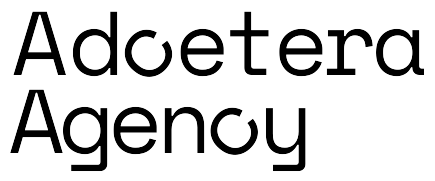5 Common Myths About the Power and Reach of Digital Marketing
- DA
- January 25, 2024
- Edited 1 year ago
Table of Contents
In an age where digital footprints are as significant as physical ones, the term ‘digital marketing’ frequently pops up in business conversations, strategy meetings, and even casual chats about growing a brand. Despite its prevalence, there’s a galaxy of misconceptions surrounding what digital marketing is and isn’t.
Today, we’ll unpack and debunk some of these myths, shedding light on a subject that’s become integral to almost every business’s success. Let’s begin, shall we?
1. Digital Marketing is Only for Big Businesses
Contrary to popular belief, digital marketing isn’t an exclusive playground for the big corporate players. In fact, it’s a goldmine for small and medium-sized businesses.
With tools and platforms that cater to various budgets, digital marketing democratizes the advertising world. Small businesses can effectively compete with larger competitors, tapping into the vast potential of online audiences.
Take, for example, cost-effective strategies like local SEO, which can put a small business on the map literally and figuratively. Additionally, platforms like Facebook and Google Ads offer targeting options that allow SMEs to reach their specific audience without breaking the bank. The key here is strategic spending and leveraging the right tools to maximize reach and impact.
2. It’s All About Social Media
While social media is a vital piece of the digital marketing puzzle, it’s only part of the picture. Content marketing, for instance, plays a pivotal role in establishing a business as a credible and authoritative voice in its industry. From informative blog posts to engaging how-to videos, quality content can drive traffic, improve SEO, and build lasting relationships with customers.
Moreover, SEO is an integral part of digital marketing that often goes unnoticed. It’s the force that helps websites gain visibility in search engine results, driving organic traffic over time.
On the other hand, email marketing continues to be a powerful tool for building customer relationships. With tailored, relevant content, businesses can engage their audience in a more personal and impactful way.
3. Digital Marketing Results are Instant
Digital marketing is a bit like gardening; you don’t plant seeds today and expect a fully-grown plant tomorrow. Building a strong online presence, whether through content marketing, SEO, or social media, is a process that demands time and dedication.
Take SEO, for instance. It often takes months of consistent effort to see significant movement in search engine rankings. The same goes for building a loyal social media following or an email list; these are assets that grow in value over time.
Moreover, digital marketing is not just about setting up campaigns and forgetting them. It involves monitoring, tweaking, and optimizing based on performance metrics. This ongoing process ensures that strategies remain effective and adaptable to changing consumer behaviors and market trends.
Brands that understand and embrace this iterative process often find themselves in a much stronger position than those looking for quick, one-off successes.
4. More Traffic Equals More Success
While high website traffic numbers can be exciting, they don’t automatically translate into business success. It’s the quality of the traffic, not just the quantity, that truly matters. A website might attract thousands of visitors, but if they’re not part of the target audience, they’re unlikely to engage meaningfully with the brand or convert into customers.
This is where the art of targeting and personalization comes into play. By understanding and catering to their ideal customer’s specific needs and preferences, businesses can attract traffic that is more likely to engage, convert, and become loyal customers.
Furthermore, analyzing metrics like bounce rate, session duration, and conversion rate provides insights into how effectively a website is performing, guiding businesses to make informed decisions to optimize their digital marketing strategies.
5. Digital Marketing Doesn’t Require a Budget
While digital marketing can be more cost-effective than traditional marketing, it still requires strategic investment. Paid advertising campaigns, for example, can accelerate growth, reach a wider audience, and generate quick wins. But they need a budget to be effective.
Additionally, investing in professional tools for analytics, social media management, or email marketing can significantly enhance the effectiveness of digital marketing efforts. These tools provide insights that help businesses refine their strategies, target their audiences more effectively, and improve their overall marketing ROI.
In short, while digital marketing offers numerous cost-effective opportunities, a thoughtful investment in the right areas can substantially amplify its impact.
Conclusion
And there we have it: five common myths about digital marketing debunked and demystified. Understanding the true nature and potential of digital marketing is key to leveraging its power. It’s a dynamic, accessible, and essential tool for businesses aiming to thrive in the digital age. Let’s embrace digital marketing for what it truly is, and watch our businesses grow.
Read More:
Digital Marketing Agency Stockholm

